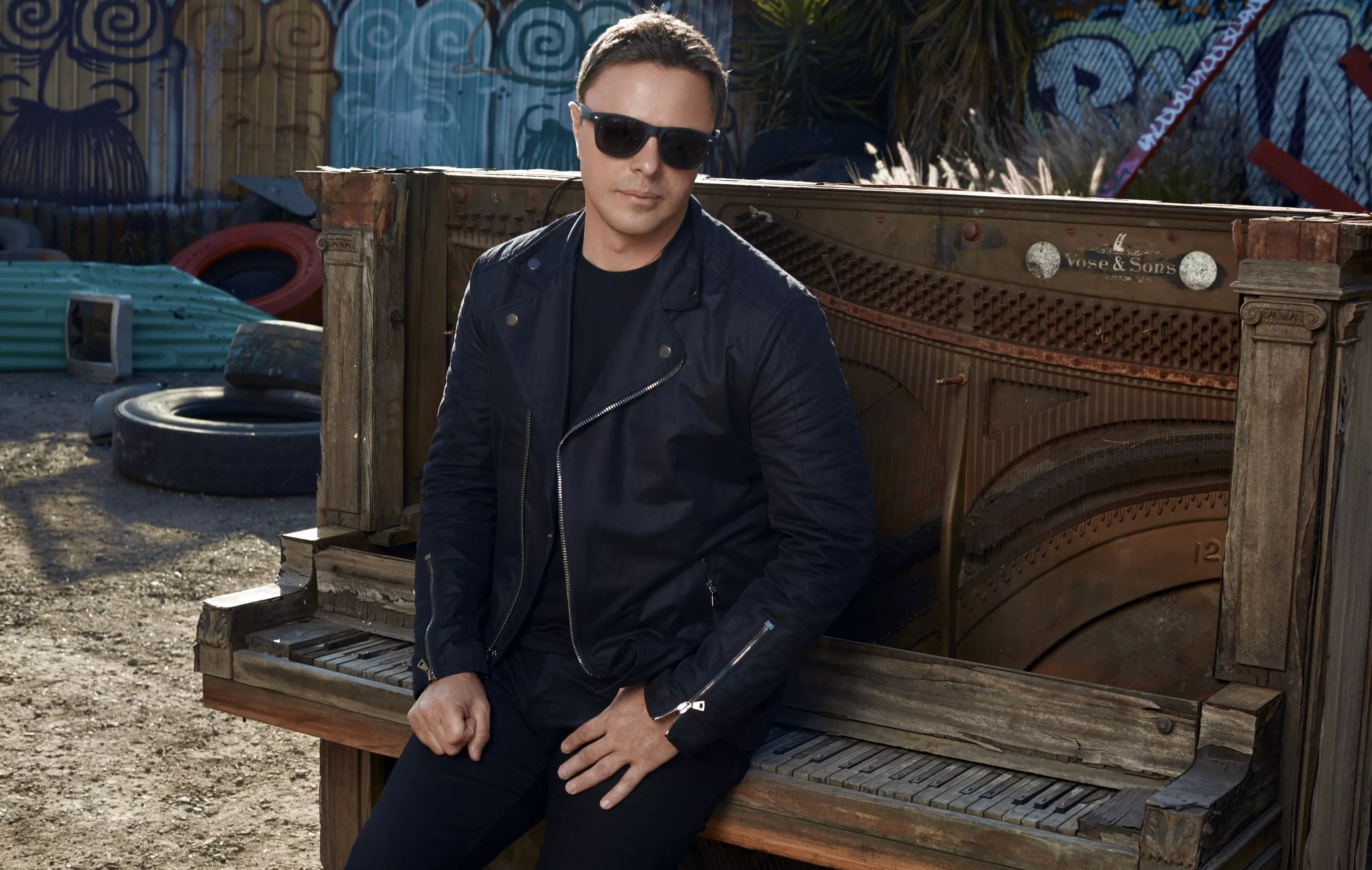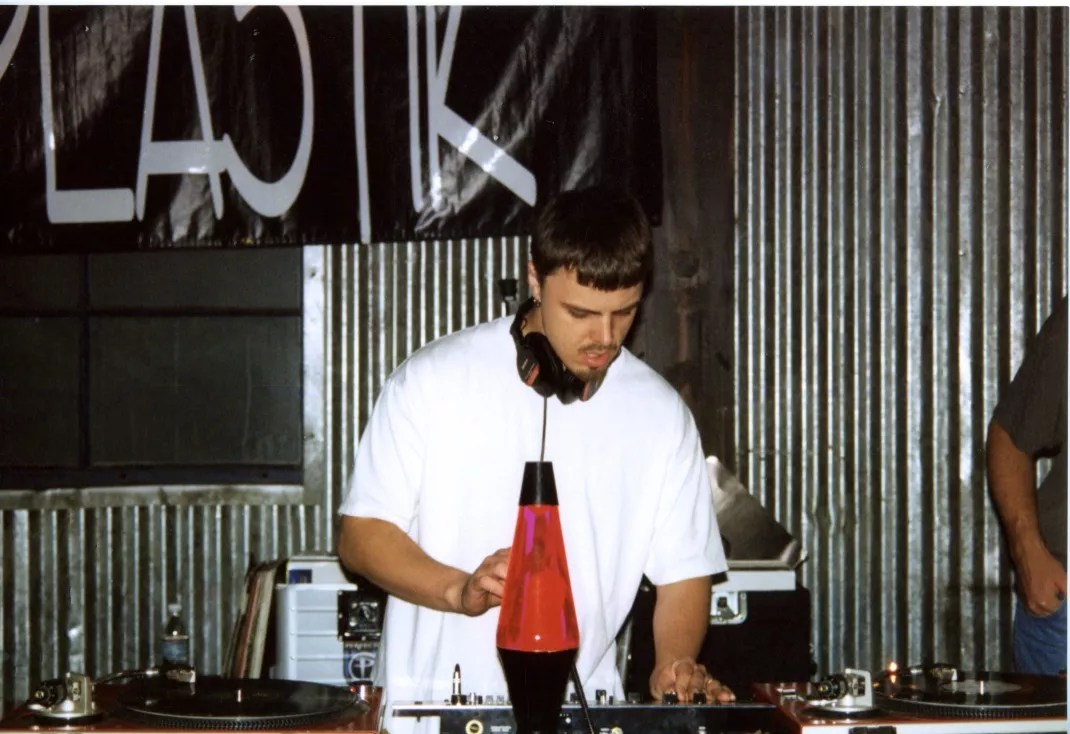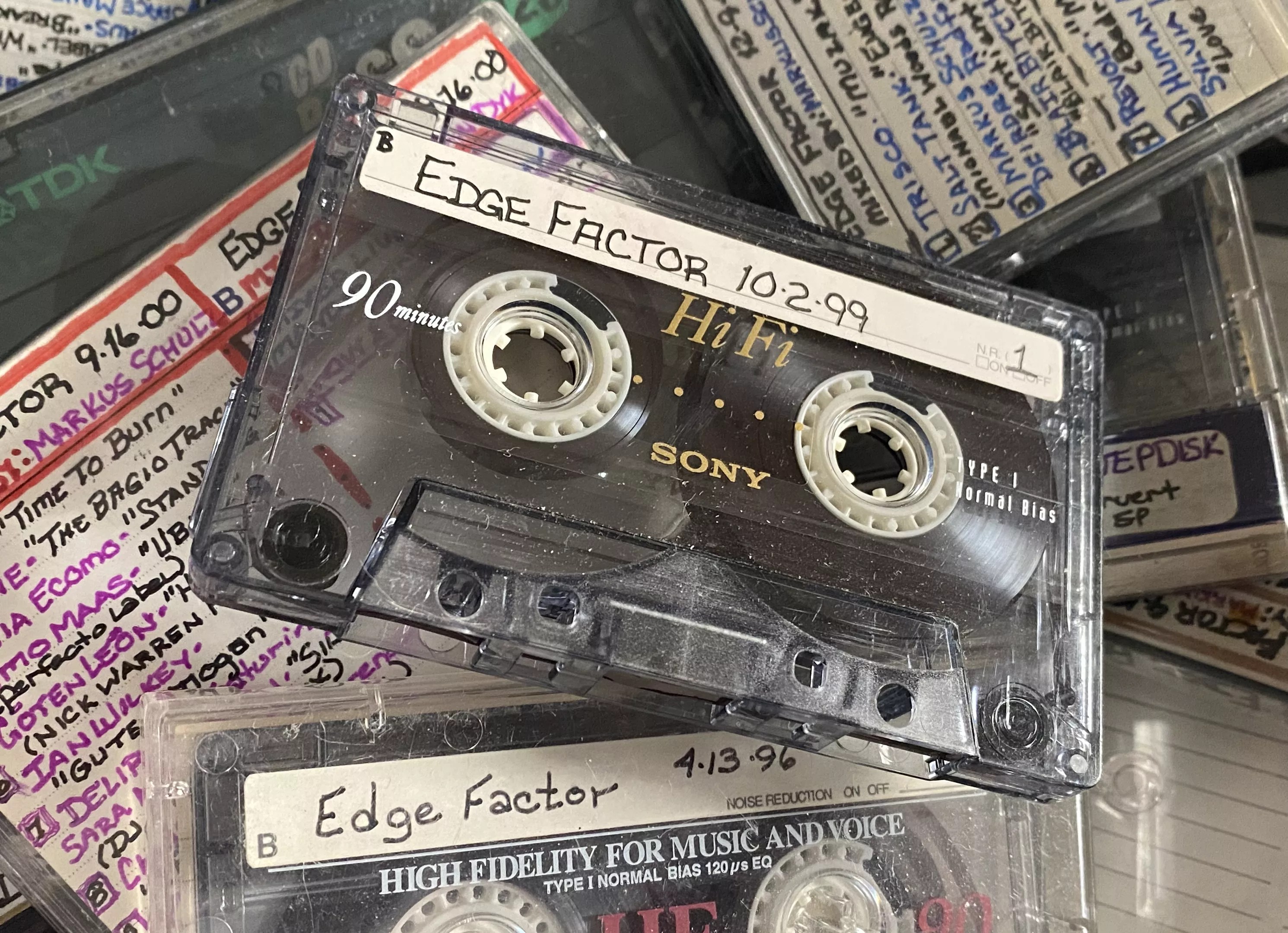
Stark Profiles PR

Audio By Carbonatix
Trance superstar Markus Schulz has racked up more than a few honors during his 33-year career as a DJ and producer. He’s crisscrossed the globe countless times over, become one of the highest-paid electronic dance music artists in the world, sold out hundreds of venues, and has been ranked as one of the best DJs in the world on a couple of occasions.
In other words, Schulz’s place in EDM history is assured, as is his spot in local DJ lore. Back before he became a globetrotting superstar headlining festivals, Schulz was an Arizona resident and a veteran of the local club circuit. He took his first steps in the DJ business here in the Valley during the ’90s, becoming a regular at local nightspots and raves and hosting a Saturday night show, The Edge Factor, on bygone alternative radio KEDJ. In fact, his stint as a resident at bygone Scottsdale nightclub The Works is something old-school EDM fans talk about to this day.
This weekend, Schulz returns to the Valley to perform at Darkstar in Tempe. New Times got a chance to speak with Schulz recently about his memories of the Valley and his longstanding support of trance music. We also discussed how his time in Arizona helped prep him for stardom, how The Works was a hangout for misfits who couldn’t go to any other club, and why he has a special place in his heart for the Valley.
What was it like playing this year’s Groove Cruise?
Oh, it was wild. We’re still recovering. We all came back like the walking wounded.
So you got your start in the Valley from the early ’90s onward. What was that like?
It seems like a lifetime ago, but doing The Edge Factor each week and DJing at [now-defunct Scottsdale nightclub] The Works, was such a huge part of who I am in my life.
How did your time in the Valley help shape your career?
I think the thing about living in Arizona was that we were kind of off on an island by ourselves hearing fragments of music coming from different countries, and different markets, and I was free to explore without much pressure. Free to explore what really excited me, explore and find my sound as well as take some chances. I really think fondly back at the days at The Works because I would try different things and see how it felt, whereas, in a lot of places, I wouldn’t have been able to do that because you’re judged right away. I think that’s one of the problems in the industry right now, there’s not a lot of places where up-and-coming people can [develop]. Gone are the little, ratty clubs where a guy can work out of a club, experiment, and come up with a sound and blow up from there. There are not a lot of places like that left in the world where you can experiment and explore.

Markus Schulz DJs at The Works in Scottsdale in the ’90s.
Steven Rogers
How did your gig at The Edge get started?
It was back when I was playing clubs like The Works, where I was at every Friday and Saturday. Originally, I came on board [with The Edge] to do a syndicated radio show called Modern Mix [a.k.a. Planet Edge] and it was all these alternative dance hits. And I was putting it together with another dude, Aaron Scofield. And they gave us another show, The Edge Factor, from midnight to like 4 o’clock on Saturdays.
The Edge Factor was a combination of my studio mixes, I would fire up my DAT machine for four hours in my studio and record them [in advance], or I would take my DAT machine with me to the works and record part of my sets and would air that [the following week].
In those days, EDM of that era wasn’t getting much, if any, radio airplay outside of major cities like New York, L.A., or Chicago, correct?
MS: Not like this, no. So this was Phoenix’s answer to [radio shows] that were big in L.A. and people were recording mix tapes off the radio and listening to them. There was a record store, [now-defunct Tempe shop] Swell where they used to play tapes of radio sessions from L.A. So this was our answer to that.
Y’all were putting a lot of great EDM from the early to mid-’90s out there.
As artists, we all needed to hear stuff like that to influence us. We were listening to a lot of new [EDM] coming out. If it sounded great, we put it on the radio. The whole experience came from a certain innocence. I was blown away whenever I heard these [new] tracks as well. I was like, “Oh my god, this is amazing. I’ve got to get this on the radio.” And I’d sit there and listen to it as a fan of the music, just like everybody else did, only I got to play it on the radio.
A bunch of those old Edge Factor shows have been posted to YouTube over the years.
Yeah, it’s great. Every once in a while, I’ll pull one up. When I listen back to those sets, all I hear is a raw Markus Schulz. I hear all the ideas of what I wanted to achieve with my sets and in my career. When I moved to London at the turn of the millennium, the lightbulb came on and I understood more about programming that kind of music and [creating a mood]. But back then, it was trial and error. I think working in the Valley molded me into who I am today. It gave me the freedom to find myself and who I was as an artist.
‘
What else do you dig about listening to your old sets from those days on YouTube?
I love listening to those or hearing about all these nostalgic days, especially from that era. It’s something of a lost era [where] you don’t find much stuff from then on the Internet. So it’s fun that its been digitized and is there for future generations. Even with DJ from the days before me, there’s not much on the Internet [from those days]. You can live forever on the Internet, but all those DJs who inspired me back in the day, there’s not much on the Internet from them, it’s kind of sad.
If anyone has cassette mixes from the old days, put them up on YouTube and share them, because – I’ll tell you what – I enjoy listening to those old sets, whether they’re mine or others. That would be amazing.
Does performing in the Valley bring back a lot of memories of your time here?
Yeah, yeah. It’s always amazing when I play in Phoenix because there’s always a handful of people from those days who come out. So it’s like a reunion. As the years go by, it becomes less and less, but nonetheless, there are always faces there that I recognize. And it’s just beautiful. I know it was like a lifetime ago, The Edge Factor and The Works, but it was such a huge part of who I am in my life. Whenever I come back to Arizona, I come back to the parking lot where The Works was and I just reminisce and look up at the sky. The sky still looks the same when you look up from that parking lot, even though so much has changed [in Scottsdale]. So, yeah, coming back to Arizona is emotional to me.

Cassettes featuring episodes of Markus Schulz’s local EDM radio show The Edge Factor.
Benjamin Leatherman
What are you planning for your Sunbar gig this weekend? Will it be one of your open-to-close sets?
Yeah, which is funny. So, talk about coming full circle, but when I was [living] here, I was playing seven- or eight-hour-long sets at The Works every Friday or Saturday night. It was these open-to-close sets where I didn’t have an opening DJ, I didn’t have a closing DJ, [and] I played from the moment the doors opened until the moment the last person left. For me, [this weekend’s gig at Sunbar] is a throwback to those sets I did at The Works where I’d set the mood, built it up to a frenzy, and then go down a rabbit hole.
You told EDM.com recently your open-to-close sets involve you getting the room vibing as one. Are you aiming to do the same at Darkstar?
Of course. The thing is, when you do an open-to-close set, you set the room and set the pace of the night, too. You pop the champagne on the music when you feel it’s ready. Patience is always key in nights like this. And you wait until you feel this unity in the audience, and then, bam, you go for it, the metaphoric pop of the champagne. That’s when you’ve got everyone unified and the whole room vibing together. It’s a little more difficult when you’ve got an opening DJ because they’ve got their own ideas. With some opening DJs, it’s like they’re rehearsing for the EDC [Las Vegas] main stage. They’ll start off their sets with their first song banging, so there’s not any real patience involved; they’re no build involved and there’s no moment where you’re gathering everyone together into one big moment.
That’s one of the beauties of an open-to-close set: you make the walls vibrate at your frequency, as opposed to walking in and the walls are already vibrating. You have to get on their vibe or stop the music, start fresh, and build a new vibration. Both aren’t ideal options.
Do miss living in Arizona?
Sometimes I miss the sense of community, you know? I do [hundreds of] gigs a year, so I’m very fortunate. I’ve gotten to see the entire world and it’s amazing. But I also miss that sense of community. I mean I had such a wonderful social circle when I lived in Phoenix. Those friends from Phoenix, they’re real friends. They still message me and they’re rooting for me from afar it makes me feel happy and at the same time it gives me the energy to know that there are friends of mine that are rooting me on and encouraging me.
Markus Schulz is scheduled to perform on Friday, February 17, at Darkstar in Tempe. Doors open at 9 p.m. Admission is $15.